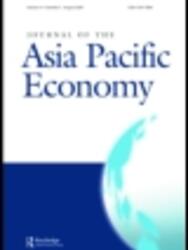Journal Special Issue
Well-being Achievements in Pacific Asia
Summary measures of human well-being are increasingly used to compare and monitor performance within and across countries. The UNDP's Human Development Index (HDI) is one of a number of measures which have done much to refocus attention on the importance of non-monetary measures of human progress. But there are many ways in which measures of human well-being can and should be refined to meet the demand for greater conceptual validity, precision and relevance. This project aims to provide guidelines for the future design and practical application of human well-being indicators by taking stock of and reviewing current practice, especially as it applies to developing countries. The project will look at recent research on human well-being concepts, refinements in the application of income-based measures (in particular, to purchasing power parity adjustments to income per capita), various composite indicators (including the HDI), gender adjustments to well-being indicators, attempts to build sustainability into well-being measures, poverty and inequality measures, social and political indicators and subjective and participatory and subjective indicators of well-being.
 Join the network
Join the network